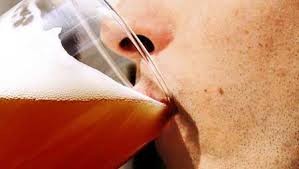Detecting alcoholism presence in life

In detecting alcoholism presence in life, the challenge may look bigger but overcoming addiction recovery must remain the ultimate objective
Detecting alcoholism presence in life: Self-Testing
Am I an alcoholic? This is a very good question tailored towards preventing, treating and detecting alcoholism presence in one’s life. It is by asking such question and getting the right responses that will help in finding permanent solution to the scourge of alcoholism. Speaking to the experts from AWAREmed Health and Wellness Resource Center under the leadership of doctor Dalal Akoury MD, it is evident that sometimes it can be hard to draw the line between safe alcohol use and alcohol abuse or dependence. Professionally doctor Akoury registers that there are several ways of detecting alcoholism presence in life. She suggests that you can carry out a self-testing method to ascertain whether you are alcoholic or not. Professionally, you may have a problem with alcohol if you answer “yes” to some of the following questions:
- Do you need to drink a lot more for you to feel the effects of alcohol?
- Do you suffer guilty about your drinking?
- Do you become short-tempered or violent when you’re drinking?
- Do you have problems at school or work because of drinking?
- Do you think it might be better if you cut back on your drinking?
Depending on how you respond to the above, a yes answer could point to the direction of alcoholism. Besides the self-testing, the National Council on Alcoholism and Drug Dependence also offers more comprehensive self-tests which can help you assess whether you have a problem with alcohol. Away from the test doctor Akoury advices that you can also consult with your physician in very many ways for a professional diagnosis.
Detecting alcoholism presence in life: Professional diagnosis
Your doctor or healthcare provider can diagnose alcoholism by carrying out a physical exam and ask you questions about your drinking habits. Like for instance your doctor may ask if you:
- Drive when you’re drunk
- Have experienced blackouts as a result of your drinking
- Have missed work or have lost a job as a result of your drinking
- Have tried to cut back on your drinking but could not
- Need more alcohol to feel “drunk” when you drink
Typically, a diagnosis of alcoholism does not require any other type of diagnostic test. Chance are that your doctor may order for blood test to check your liver function if you show signs or symptoms of liver disease. This is because alcohol abuse can cause serious and lasting damage to your liver. Remember that it is your liver which is responsible for removing toxins from your blood and so when you drink too much, your liver will have difficulties in filtering the alcohol and other toxins from your bloodstream which can lead to liver disease and other complications.
Detecting alcoholism presence in life: How is alcoholism treated?
Treatment for alcoholism varies, but each method is meant to help you stop drinking altogether (abstinence). Treatment may occur in stages and can include the following:
- Counseling to solve emotional complications
- Detoxification or withdrawal for the elimination of alcohol in the body
- Medical treatment for alcoholism related health complications
- Medications to help control addiction
- Rehabilitation to learn new coping skills and behaviors
- Support groups, including 12-step programs such as Alcoholics Anonymous (AA)
Finally you can prevent alcoholism by limiting your alcohol intake. This may not be easy (detecting alcoholism presence) but consulting with doctor Dalal Akoury will make it much easier for you. Your health is more important than anything else and therefore scheduling for that appointment will be a good start towards your recovery process.
Detecting alcoholism presence in life: Self-Testing






